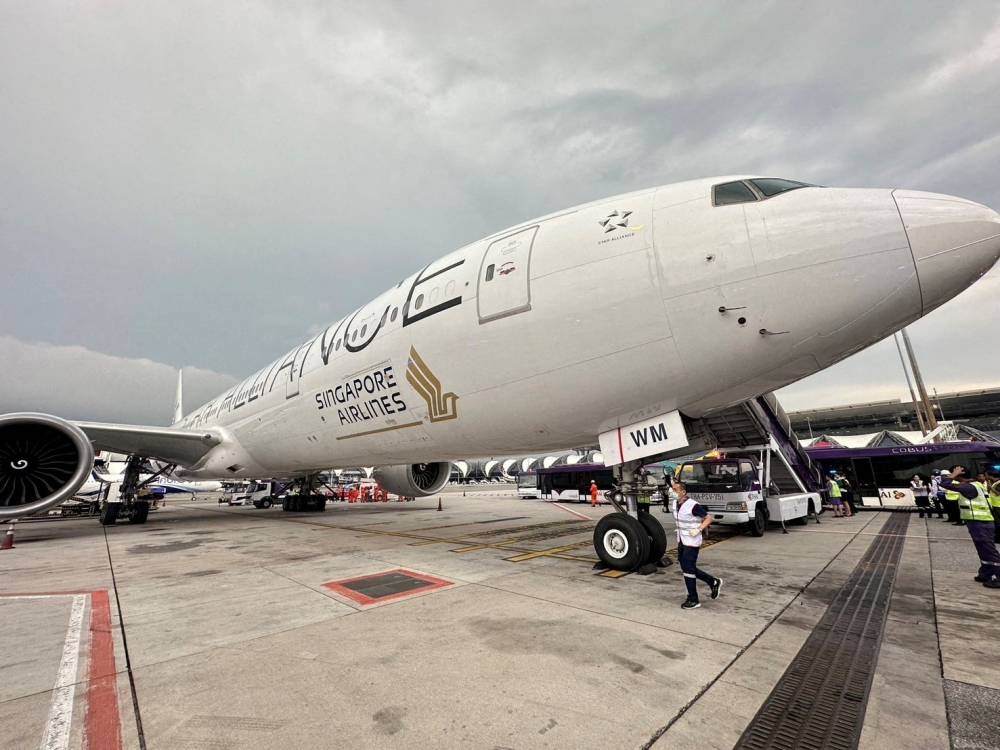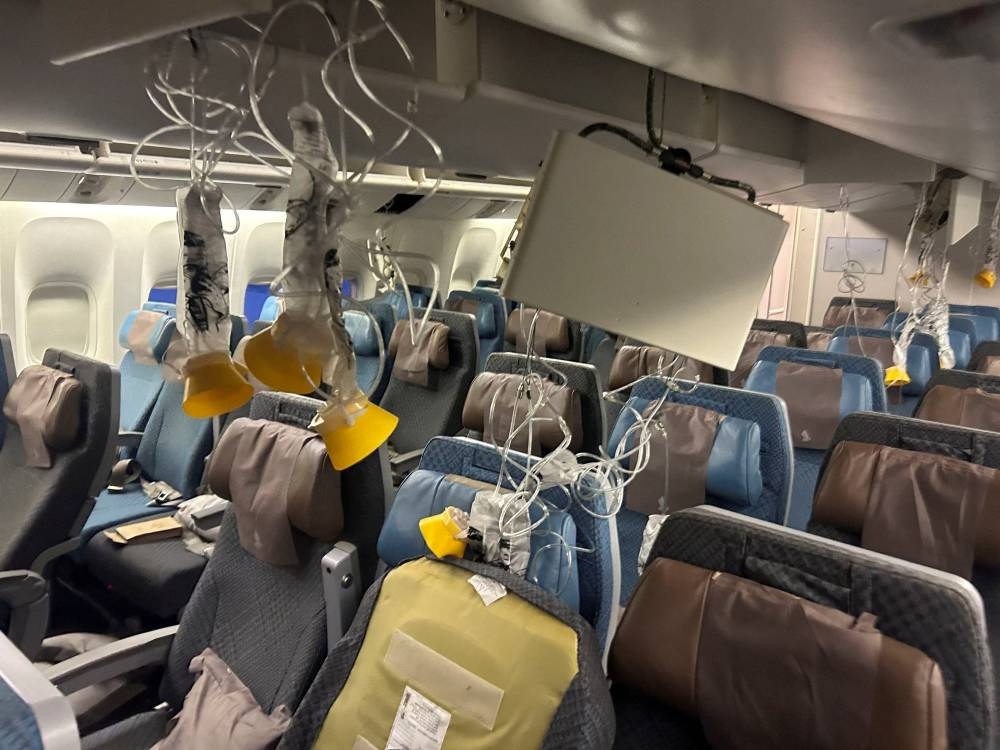- Aircraft had 54 metre altitude drop in 4.6 seconds
- People not wearing seatbelts forced into air, probe says
- Aircraft encountered rapid change in altitude, air speed
- 28 passengers still in Thai hospitals - airline
A 73-year-old passenger died of a suspected heart attack and dozens were injured after flight SQ321, flying from London to Singapore, encountered what the airline described as sudden, extreme turbulence while flying over Myanmar.
The May 21 flight on a Boeing 777-300ER plane carrying 211 passengers and 18 crew diverted to Bangkok for an emergency landing after the plane was buffeted by turbulence that flung passengers and crew around the cabin, slamming some into the ceiling.
"The aircraft experienced a rapid change in G (gravitational force) ... This likely resulted in the occupants who were not belted up to become airborne," the Singapore Transport Ministry said in a statement.
"The vertical acceleration changed from negative 1.5G to positive 1.5G within 4 seconds. This likely resulted in the occupants who were airborne to fall back down," it said, citing information extracted from the flight data and cockpit voice recorders.
"The rapid changes in G over the 4.6 seconds duration resulted in an altitude drop of 178 ft (54 m), from 37,362 ft to 37,184 ft. This sequence of events likely caused the injuries to the crew and passengers," it added.
Shaken passengers described scenes of chaos in the minutes after the incident, with the turbulence throwing people upwards then into the aisle, many left with bleeding and head wounds.
Photographs of the cabin showed gashes in the overhead cabin panels, oxygen masks and panels hanging from the ceiling and luggage strewn around. A passenger said some people's heads had slammed into lights above the seats and broken the panels.
Singapore Airlines said it acknowledged the report and was cooperating fully with the investigation.
The airline late on Tuesday had said 42 people who were on board the flight were still in Bangkok, including 26 passengers receiving medical treatment in hospital.
Among those initially hospitalised were patients with spinal cord injuries and some with brain and skull injuries, according to Thai medical officials.
The preliminary report said that upon the flight encountering slight vibrations there was an uncommanded increase in altitude, resulting in the autopilot pitching the aircraft downwards. The pilots experienced an increase in airspeed and responded by applying speed brakes.
"While managing the airspeed ... it was heard that a pilot called out that the fasten seat belt sign had been switched on," it said.
Hong Kong's Greater Bay Airlines said on Wednesday it would require passengers to fasten seatbelt at all times during the flight even when the seat belt sign is off, starting from Thursday.
The company said it's not a mandatory requirement but a precautionary measure for passenger safety.
The investigation team comprised Singaporean investigators, and US representatives from Boeing, the National Transportation Safety Board (NTSB) and the Federal Aviation Administration (FAA). The Singapore transport ministry said the probe was ongoing.


